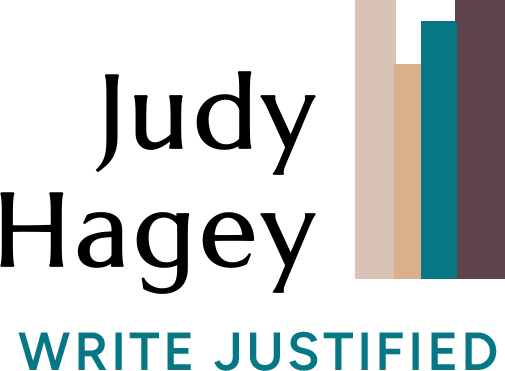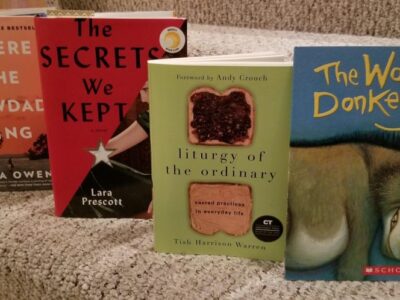 If you spend any time on Facebook, you’ve likely seen the Book Challenge. For seven days, participants are invited to post the image of a book they’ve loved — one each day without comment — and then challenge someone else to do the same. The premise behind the challenge is to promote literacy and build a book list. For me the challenge was not commenting because how can you not comment on books you’ve loved? So, permit me to share those seven books here with comments.
If you spend any time on Facebook, you’ve likely seen the Book Challenge. For seven days, participants are invited to post the image of a book they’ve loved — one each day without comment — and then challenge someone else to do the same. The premise behind the challenge is to promote literacy and build a book list. For me the challenge was not commenting because how can you not comment on books you’ve loved? So, permit me to share those seven books here with comments.
My to-read list is already longer than I think I’ll have time to complete in my lifetime, but that’s beside the point. Here are some recent favorites you might wish to add to your list.
Where the Crawdads Sing
I don’t always compile my reading list from the New York Times bestseller list, but when I’m 29th in line at my local library for a book that’s been on the NY Times list for several weeks, I will break down and buy it. That’s what happened with Delia Owens’s debut novel.
As fascinating for me as the story she weaves is Owens’s back story. With degrees in zoology and animal behavior, Owens authored three nonfiction books about her life as a wildlife scientist in Africa. Over the course of a decade, she worked on this novel drawing extensively on her experience in Africa — especially the isolation of living in a remote region with her then-husband. Isolation and its effect on the psyche plays large in Where the Crawdads Sing. Now 70, Owens achieved breakout success with her first fiction work. Anyone who thinks they’re too old to write, take note.
As others have noted, Crawdads is part mystery, part coming-of-age, part nature lesson. Together, they make a compelling read — one I could not put down.
Abandoned by her family, Kya Clark learns at an early age to fend for herself. She mines the North Carolina marshlands around her remote, dilapidated shack for food and manages to eke out a meager life. When Chase Andrews, a popular, local figure, is found dead the Marsh Girl is a prime suspect. More complex than the plot are the characters, and that’s what drew me in to the story. We come to know Kya, Tate, a young man who befriended her and taught her to read, the sheriff investigating the crime that has few clues, and through back story, even the parents who abandoned their children. Yet, just when you think you really know someone, you find out you don’t. And that’s why the ending left me groping and gaping. How did I miss this? I may have to read it again and this time be on the lookout for the clues that lead to the surprise ending. At least I have my own copy.
The Secrets We Kept
Lara Prescott is the author of the second debut novel I’ve read recently. Having recently read several WWII novels with female protagonists, I was ready for something different.
The Secrets We Kept is set in post-WWII and the early days of the CIA. It is based on the true story of the CIA’s clandestine attempt to smuggle Dr. Zhivago, Boris Pasternak’s banned masterpiece out of the Soviet Union. Prescott weaves the stories of three women together: Olga–Pasternak’s mistress and muse who was sent to the Gulag for refusing to divulge the plot of his novel and Sally and Irina, two typists in the CIA pool who became spies.
I remember when Dr. Zhivago was a popular movie in the US in the late 60s, but had no idea of its background. Secrets reveals the inner workings of the CIA as well as life in the USSR during the height of the Cold War.
Dreyer’s English: An Utterly Correct Guide to Clarity and Style
As an editor, I try to stay up on the latest resources to ensure that I’m keeping up with changes in the industry. Dreyer is a reliable source having worked in senior positions with one of the major publishers for more than 20 years. But the real benefit of his contribution is his lighthearted approach to punctuation, style, and usage. None of us should take ourselves too seriously, and Dreyer serves as a great model.
Rules of Civility
I was first introduced to Amor Towles when a book club I was in read A Gentleman in Moscow. Until I read the About the Author section, I was convinced he was a Russian who had experienced, if not house arrest as did Count Rostov, certainly had lived through the period of retribution following the Bolshevik revolution. In fact, Towles is a native of Boston. His skill as a writer is his ability to create such a believable environment for his characters that a reader may be forgiven for thinking he actually does write of what he’s experienced.
Rules of Civility was Towles’s first success. On New Years Eve 1938, Katey Kontent and her boardinghouse roommate Eve happen to meet handsome banker Tinker Grey at a nightclub. Over the next year, Kontent is introduced to the higher echelons of New York society. Thanks to her strong sense of self she remains true to her purpose and discovers that life behind the glittering high rises is not as glamorous as it would appear.
Liturgy of the Ordinary:Sacred Practices in Everyday Life
I’ve been a fan of Tish Harrison Warren’s writing for some time, having read her articles in Christianity Today. Liturgy was named CT’s 2018 Book of the Year. When the opportunity arose to hear her speak at a conference, I couldn’t wait. She’s as engaging a speaker as she is writer, so I had to purchase her book.
I appreciate Warren’s writing because she’s real about the struggles we face as wives, mothers, and thoughtful church members. In Liturgy, she walks through a “typical” day, if there is such a thing as a mother of young children, and identifies the sacred in the mundane. As Reformed believers, we often parrot “all of life is worship,” but living worshipful lives is much harder. Warren often explains the history behind some of the practices in liturgical churches. In church, as in life, we are often going through the motions without understanding why or appreciating their significance. Warren does a service in shedding light on those traditions as well as offering practical suggestions for a more thoughtful way to find pleasure in our routines for in such pleasure we find the heart of God.
Wonky Donkey
This book has two things a good children’s book should have: color illustrations and repetition — and a genius, albeit accidental brilliant marketing happenstance. New Zealander Craig Smith wrote the book and accompanying song in 2009 after hearing a joke. “What do you call a donkey with three legs? Wonky Donkey.” But it was the video of a Scottish grandma reading the book to her grandchild that went viral earlier this year that sent Smith’s book into second and third printings. (When I ordered it, it was out of stock.)
I don’t know of a better endorsement for a children’s book than that the reader enjoys it as much, if not more than the child. And this grandmother did. If you don’t get the book, be sure to watch the video. I dare you to watch and not break out in giggles yourself.
This Blessed Earth: A Year in the Life of an American Family Farm
I don’t remember exactly how I came across this book. It may have been an NPR author interview. But I remember it resonating with me because of the historic flooding that western Iowa and eastern Nebraska faced this spring. Coming on the heels of several years of low commodity prices and in the midst of a trade war with China, the flood was just the latest in a series of events out of farmers’ control making life on the farm difficult and even more so on a true family farm.
Author Ted Genoways lives in Lincoln, Nebraska, with his photographer wife. I reasoned that if anyone could do justice to the story of the American farmer, someone who lives in the Midwest and has a journalist’s sense for getting both sides of the story ought to be able to do it. Despite some of the critique, I believe Genoways succeeds in portraying the challenges both from within and without for the American farmer.
Blessed Earth follows the cycle of planting and harvesting on the Hammond family farm in York County, Nebraska. Patriarch Rick Hammond is preparing to pass the operation on to the next generation, yet worries that forces beyond their control will make it impossible to keep the enterprise afloat. Torn between their desires to steward the land well and respond to market and cultural forces, the family disagrees at times about how to move forward.
What really made me want to read this book was Genoways’s own observation of the interest that the Keystone Pipeline generated from journalists across the country. He saw them descend on the area and write one-sided stories about the issue. He set out to give some background and realism to that and other issues facing the American farmer. In my opinion, he does a great service, and this is a must read for anyone who cares about where their food comes from.
Got any must-reads to pass along? Despite the length of my to-read list, I’m always open to suggestions for a great read.



 Not To Be Confused With – an expanded version
Not To Be Confused With – an expanded version
Leave a Reply